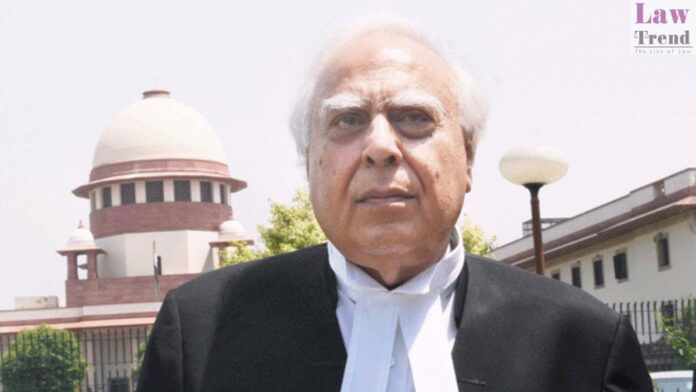The constitutional tussle between the Legislature and Judiciary deepened on Tuesday as Senior Advocate and Rajya Sabha MP Kapil Sibal firmly countered Vice President Jagdeep Dhankhar’s assertion that “Parliament is supreme”. Sibal, also the president of the Supreme Court Bar Association, stated that “neither Parliament nor the Executive is supreme; the Constitution is supreme”, and its interpretation rests solely with the Supreme Court.
Without naming the Vice President, Sibal posted on X:
“The law: Neither Parliament nor the Executive is supreme. The Constitution is supreme. The provisions of the Constitution are interpreted by the Supreme Court. That’s how this country has understood the law so far.”
In a follow-up post, Sibal emphasized that the Supreme Court’s recent judgments—which have drawn criticism from senior government functionaries and BJP MPs—are consistent with constitutional principles.
“Supreme Court: Parliament has the plenary power to pass laws. Supreme Court has the obligation to interpret the Constitution and do complete justice (Article 142). Everything the Court said is: 1) Consistent with our constitutional values 2) Guided by national interest,” he said.
Vice President’s Remarks
Sibal’s comments follow closely on the heels of Vice President Dhankhar’s controversial remarks made during a public address. Dhankhar, who also serves as Chairperson of the Rajya Sabha, reiterated his belief that “elected representatives are the ultimate masters of what constitutional content should be” and that “there is no visualisation in the Constitution of any authority above the Parliament.”
His statements came amid an ongoing debate over the Supreme Court’s recent ruling in a case concerning the Tamil Nadu legislature. The ruling set a time-bound framework for the President and Governors to act on Bills passed by the legislature, prompting sharp criticism from some quarters of the government.
Vice President Dhankhar, himself a former senior advocate, raised concerns over what he viewed as judicial overreach:
“There is a directive to the President by a recent judgment. Where are we heading? What is happening in the country? We never bargained for democracy for this day… So we have judges who will legislate, who will perform executive functions, who will act as super-parliament, and absolutely have no accountability.”
He went on to characterize Article 142 of the Constitution—which empowers the Supreme Court to do complete justice in any matter—as a “nuclear missile against democratic forces… available to the judiciary 24 x 7.”
BJP Leaders Join the Chorus
Adding fuel to the fire, BJP MP Nishikant Dubey accused the Supreme Court of undermining Parliament’s authority and fanning religious discord:
“The Supreme Court is crossing its limits… It is responsible for inciting religious wars in this country.”
Another BJP leader, Dinesh Sharma, claimed “no one can challenge the President”, asserting that the President’s role was beyond judicial scrutiny.
However, BJP national president JP Nadda distanced the party from these remarks, stating:
“These are their personal statements. The BJP neither agrees with nor supports such statements. The BJP completely rejects them.”
Judiciary Responds
Judges of the Supreme Court have also weighed in on the controversy. Justice BR Gavai, who is set to become the next Chief Justice of India, noted that the court has been repeatedly accused of stepping into the domain of the Executive. On Tuesday, Justice Surya Kant, the third-most senior judge in the apex court, remarked:
“The judiciary as an institution is under attack every day… but we are not worried.”
Amid the escalating constitutional standoff, top government sources issued a conciliatory statement, affirming that “respect for the judiciary is paramount” and that all democratic institutions are working together toward the vision of Viksit Bharat (Developed India).




